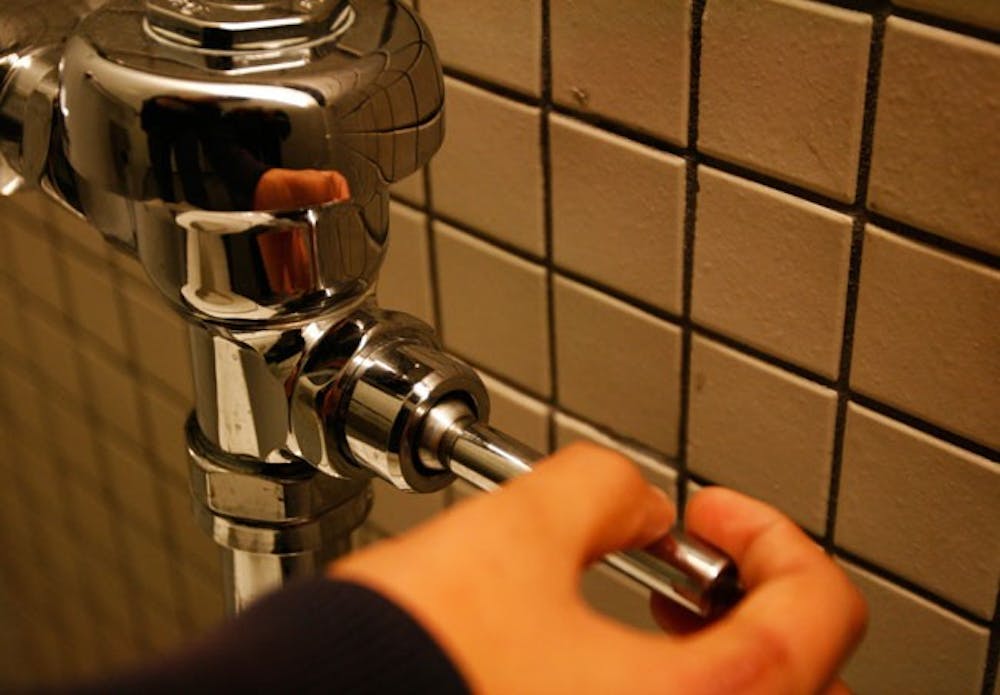What you flush down the toilet every day is winning UNC awards.
The WateReuse Association, a nonprofit organization that promotes local water use, named UNC the “Institution of the Year” for its efficient water-use systems.
In April, the University began using treated wastewater to complete tasks such as irrigating sports fields and flushing toilets, tasks that had previously been accomplished with potable water. Potable water is safe for drinking, while the treated water UNC uses is not.
“We will be able to defer payment to meet future water demand,” said Sally Hoyt, stormwater engineer for University Energy Services. “OWASA and UNC customers will not have to develop another water source or upgrade water treatment plants.”
The University completed the shift with the help of the Orange Water and Sewer Authority, prompted by droughts that made potable water scarce. Cindy Shea, director of UNC’s Sustainability Office, estimates the system will reduce UNC’s potable water use by about 200 million gallons a year.
“It is a more efficient and quieter system,” Shea said. “The severe drought in 2002 caused us to attempt to reduce our potable water usage.”
Hoyt estimated that by the end of this fiscal year, UNC will have converted 30 percent of its water use to reused water.
Shea said UNC has been testing the feasibility of the program for several years. But the system was not implemented until April because the University needed to construct the new distribution system and make upgrades to the water treatment plants.
The WateReuse Association also recognized UNC for its Bell Tower Project, a system that uses rainwater to help meet water demand. UNC spent $10 million on the project after economic analysis showed that the money saved would pay for construction costs, Hoyt said.
UNC is looking to expand the program to all campus cooling towers, Shea said. She added that its recognition might have benefits other than saving money.
“We are opening up a whole new sector for using reclaimed water,” Shea said. “We anticipate there will be tourist demand due to our sustainability practices.”
Contact the University Editor at udesk@unc.edu.
UNC nationally recognized for water recycling program
Ongoing efforts improve system

In April, the University began using treated waste water instead of potable water. DTH/Ali Cengiz


